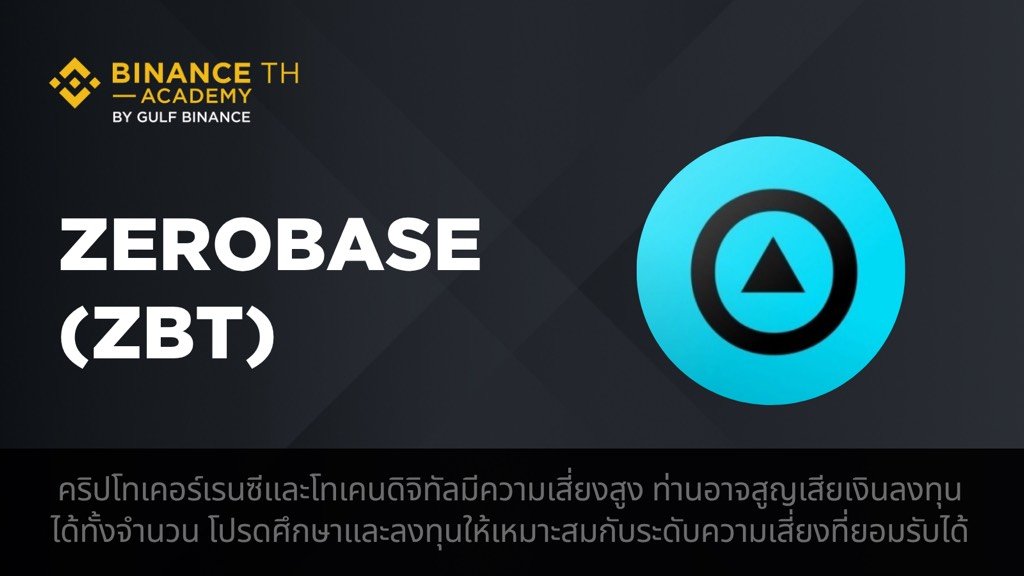What is Zerobase (ZBT)?

In today’s digital world, secure and private computation is crucial if not done properly, it can lead to serious risks.
Zerobase is a privacy-preserving computing platform that combines Zero-Knowledge Proofs (ZKPs) with Trusted Execution Environments (TEEs) to enable off-chain computation that remains both private and verifiable.
It’s ideal for complex use cases such as financial modeling, identity verification, or decentralized exchange (DEX) operations where sensitive data must be processed privately, but the results still need to be verified on-chain.
Zerobase generates cryptographic proofs of computation, allowing verification on the blockchain without revealing underlying data.
Its core modules include zkStaking, ProofYield, zkLogin, and a decentralized Proving Network that supports both ready-made and customizable zero-knowledge circuits.
This flexibility enables developers to build verifiable smart contracts and trustless DApps with stronger privacy and higher performance.
Zerobase Network Architecture
The Zerobase network is built on a multi-hub and node architecture to ensure scalability, efficiency, and fault tolerance.
Node Partitioning & Hub Management
Zerobase uses consistent hashing to assign nodes across hubs arranged in a virtual ring structure, minimizing data migration as the system grows and balancing workloads efficiently. Hubs can dynamically join or leave the network, while the system automatically reallocates nodes to maintain high availability.
Virtual Nodes
Each hub is represented by multiple virtual nodes to prevent load imbalance, ensuring even workload distribution across the network.
Types of Nodes
Proving Nodes:
Execute zero-knowledge computations inside TEEs, backed by collateral in stablecoins to guarantee reliability and network security.
Hub Nodes:
Handle proof transmission and bandwidth sharing without collateral, earning rewards proportional to their network contribution.
Privacy and Security
Private inputs are processed within Trusted Execution Environments, ensuring that node operators cannot access sensitive data. Meanwhile, the system remains high-performance with low latency, suitable for real-world applications.
Zerobase Use Cases
Zerobase provides privacy-focused modules to support diverse, real-world use cases
zkLogin:
A blockchain-based authentication system that allows users to log in via identity providers (like Google or other DID providers) without revealing personal data.
zkDarkPool:
A confidential trading module for DEXs that hides transaction details until the trade is complete preventing front-running and market manipulation.
Zerobase Staking:
Enables users to stake assets privately without revealing their strategy or personal information, while maintaining risk transparency.
AI Inference Verification & Content Authenticity:
Platforms or startups can use Zerobase to verify AI outputs or authenticate digital content using cryptographic proofs reducing misinformation and fake content in the digital ecosystem.
What is the ZBT Token?
ZBT is the native utility and governance token of the Zerobase ecosystem. It powers the network’s core operations and decision-making.
Users can use ZBT to access services such as zkStaking, Proof Routing, and specific privacy modules. Nodes earn ZBT as rewards for generating proofs or providing bandwidth, while regular users can stake stablecoins via zkStaking to earn on-chain verified yields.The Zerobase DAO also manages buyback and burn programs to stabilize the token economy and align supply with real network activity.
Token Distribution
Node Stake: 43.75%
Team & Advisors: 20%
Ecological Fund: 15%
Investors: 11.25%
Airdrop & Early Mining: 8%
Liquidity: 2%
Total Supply 1 billion ZBT, Circulating Supply 120 million ZBT
Summary
Zerobase (ZBT) bridges the gap between privacy and transparency in blockchain systems by combining cryptographic proofs with trusted hardware computation. It empowers developers, enterprises, and end-users to build and use privacy-first decentralized applications (DApps) that remain verifiable on-chain ensuring trust, privacy, and integrity in the next generation of digital infrastructure.
